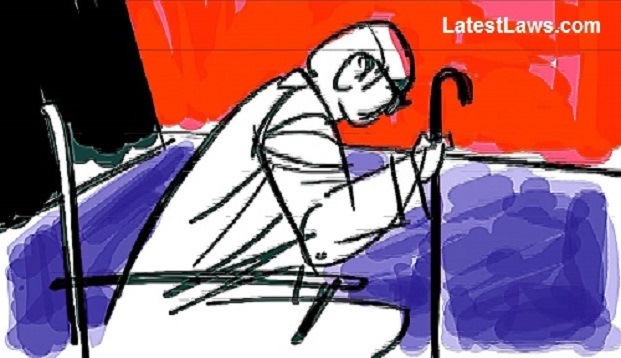The Kerala High Court has held that obective of the Tribunals constituted under under Senior Citizens Act is not to merely issue Maintainenace directions but to ensure dignity of Senior Citizens as well.
The single-judge bench of Justice Murali Purushothaman observed that Maintenance Tribunal has the jurisdiction and powers to issue directions to the children of a senior citizen or parent who deprive the him/her of his/her earnings and rendering unable to maintain himself/herself.
"A senior citizen or parent who is unable to maintain himself/herself due to deprivation of earnings by children or relative shall also be entitled to make application for maintenance and the Maintenance Tribunal has the jurisdiction and powers to issue directions to the children or relative not to deprive his/her earnings so that he/she maintains himself/herself. The power of the Maintenance Tribunal under the Senior Citizens Act is not circumscribed to mere ordering of monthly allowance for maintenance of senior citizen where the relative or children neglect or refuses to maintain the senior citizen or parent, but to ensure maintenance from own earnings to lead a dignified life."
The Senior Citizens Act is intended to ensure that senior citizens are not left destitute, or at the mercy of their children or relatives, the Court stressed.
The observations came in a writ petition filed by a 66 years old women. The issue raised via it was if the parent is able to maintain herself from her own earnings, but the son has obstructed the parent to have access to her earnings, can the Maintenance Tribunal constituted under the Senior Citizens Act direct the son not to obstruct the parent from taking the earnings and to create a peaceful living atmosphere for her in the residence?
The Court at the outset noted that Maintenance and Welfare of Parents and Senior Citizens Act, 2007 casts obligation on the relative or children to maintain a senior citizen or a parent who is unable to maintain himself/herself, to lead a normal life. The right to life under Article 21 of the Constitution includes right to live with human dignity. The object of Senior Citizens Act is to maintain parents and senior citizens to lead a life with dignity.
The Maintenance Tribunal passed Ext. P1 order directing respondents herein to:
(i) not to obstruct the petitioner from taking usufructs from the property
(ii) to create a peaceful living atmosphere for the petitioner in the house, and
(iii) not to cause any harm to the petitioner.
However, the petitioner complained of the above order not being complied with and moved to Maintainenace Tribunal again for enforcement of the same. In present petition, it was contended that required steps weren't taken by the Tribunal and thus direction to the Maintenance Tribunal and the District Magistrate to enforce Ext. P1 were sought.
Counsel for the petitioner contended that Ext. P1 order passed by the Maintenance Tribunal exercising the powers under Chapter II of the Senior Citizens Act is legal and valid and therefore, liable to be enforced. He further submitted that the petitioner has approached other forums for right to take income and for residence, but, the provisions of the Senior Citizens Act have overriding effect over other enactments and there are no conflicting orders and the order of the Maintenance Tribunal is liable to be enforced.
It was further contended that, under Rule 19 of the Rules, the District Magistrate has wide powers to ensure peaceful living of the senior citizen with security and dignity and also to oversee timely and fair disposal of applications for maintenance and execution of orders of Maintenance Tribunal.
Counsel for the opposite party contended that Ext.P1 is without jurisdiction and the Maintenance Tribunal cannot pass an order in the nature of Ext. P1 as jurisdiction of the Maintenance Tribunal is only with regard to maintenance and the Tribunal has no jurisdiction to pass an order with regard to other civil rights of the parties.
The Court observed that when the Senior Citizen or parent who has earnings makes an application to the Maintenance Tribunal contending that her right to earning is obstructed by the son who has statutory obligation to maintain the parent, the Maintenance Tribunal has to ensure that the Senior Citizen or parent is able to maintain herself from her earnings.
Noting that the object of the Act is not only to provide financial support, but also to prevent financial exploitation of the senior citizen and parent by relative or children, the Court held that when the petitioner is prevented from taking the earnings and to reside in the house, she is deprived of her maintenance.
"The Maintenance Tribunal, on the application of the parent under Section 5 can issue direction to the children, who have obligation to maintain the parent, not to deprive her access to her earnings and residence so that she maintains herself and lead a normal life."
The Senior Citizens Act is intended to ensure that senior citizens are not left destitute, or at the mercy of their children or relatives, the Court remarked clarifying that directions of the Maintenance Tribunal in Ext.P1 are to remove the incapacity of the petitioner to maintain herself, so that she is not left destitute, but leads a normal dignified life.
Settling the question of enforcement of the above order, the Court said:
"Since Ext. P1 order is passed with directions to ensure that the petitioner maintains herself from her own earnings and live peacefully, it is the duty of the District Magistrate under Section 22 and Rule 19 to secure compliance of the said order either through the Maintenance Tribunal or by himself."
The writ was thus allowed and directions were issued.
Read Order Here:
Share this Document :Picture Source :


























